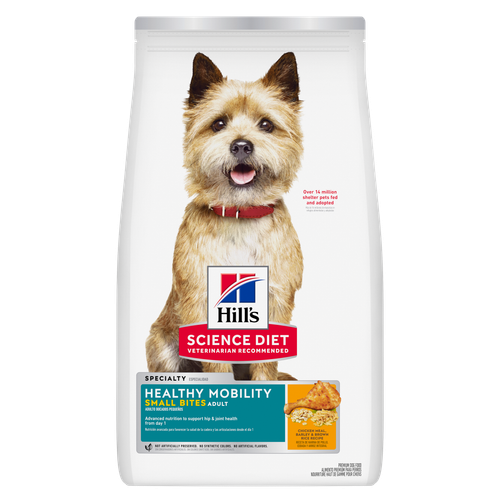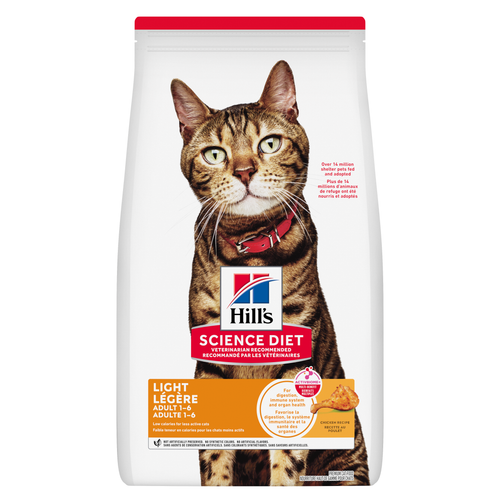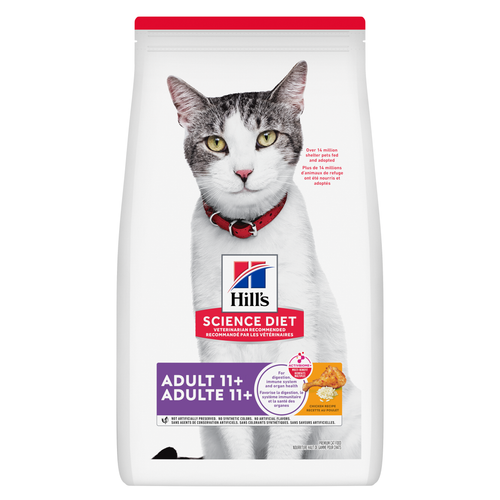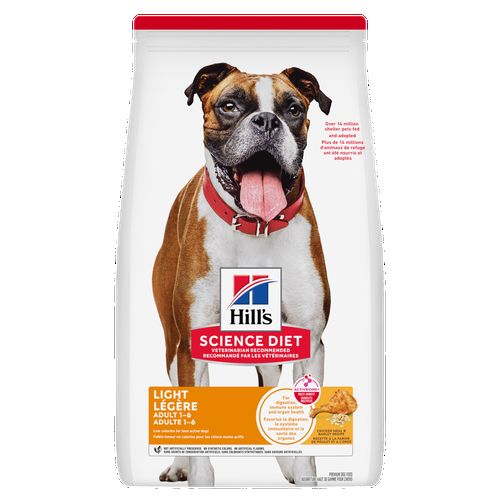
-
Find the right food for your petTake this quiz to see which food may be the best for your furry friend.Find the right food for your petTake this quiz to see which food may be the best for your furry friend.Featured products
 Adult Healthy Mobility Small Bites Chicken Meal, Barley & Brown Rice Recipe Dog Food
Adult Healthy Mobility Small Bites Chicken Meal, Barley & Brown Rice Recipe Dog FoodAdvanced nutrition to support hip & joint health from day 1
Shop Now Adult Sensitive Stomach & Skin Small & Mini Chicken Recipe Dog Food
Adult Sensitive Stomach & Skin Small & Mini Chicken Recipe Dog FoodHill's Science Diet Sensitive Stomach & Skin Small & Mini dry dog food is tailored nutrition for Small & Mini dogs while being gentle on stomachs. Nourishes skin & promotes a lustrous coat.
Shop Now Adult Light Large Breed Chicken Meal & Barley Recipe Dog Food
Adult Light Large Breed Chicken Meal & Barley Recipe Dog Food18% lower calories vs. Science Diet Large Breed Adult
Shop NowFeatured products Adult Light Chicken Recipe Cat Food
Adult Light Chicken Recipe Cat Food20% lower calories vs. Hill's Science Diet Adult
Shop Now Adult Healthy Cuisine Seared Tuna & Carrot Medley Cat Food
Adult Healthy Cuisine Seared Tuna & Carrot Medley Cat FoodDelicious seared tuna paired with tender carrots in a mouthwatering sauce
Shop Now Adult 11+ Chicken Recipe Cat Food
Adult 11+ Chicken Recipe Cat FoodSupports brain health & beautiful fur. Helps keep immune system, heart & kidneys healthy.
Shop Now -
Dog
- Dog Tips & Articles
-
Health Category
- Weight
- Food & Environmental Sensitivities
- Urinary
- Digestive
- Joint
- Kidney
- Dental
- Cancer
-
Life Stage
- Puppy Nutrition
- Adult Nutrition
- Senior Nutrition
Cat- Cat Tips & Articles
-
Health Category
- Weight
- Skin & Food Sensitivities
- Urinary
- Digestive
- Kidney
- Dental
- Stress
- Cancer
-
Life Stage
- Kitten Nutrition
- Adult Nutrition
Featured articles Antioxidants
AntioxidantsUnderstand the importance of antioxidants in your dog or cat's food, and how they can help protect your pet and keep them healthy.
Read More Water
WaterDiscover why water is the most important nutrient for your dog or cat to live a healthy life. Find out how much water your pet should consume each day.
Read More Importance of DHA in your Pet's Food
Importance of DHA in your Pet's FoodLearn about DHA, Docosahexaenoic Acid, a natural omega-3 fatty acid that is essential in the development of the brain and nervous system in cats & dogs.
Read More -


It's an Instagram-worthy moment when your pooch puts their paws over their face. But while a dog covering their face is adorable, what makes them do it? Curious as to why your dog hides their face? Read on to learn more.
Why Does My Dog Cover Their Face?

Dogs rely heavily on body language to communicate, and hiding their faces, or covering their nose is just one way they try to tell you how they're feeling. Here are the most common reasons why your dog may cover their face, according to iHeartDogs.
To Scratch an Itch
What looks like hiding at first glance might simply be your dog rubbing or scratching an itch. Dogs not only use their front paws to relieve an itchy face or eyes; they also sometimes use them to wipe away eye gunk or substances that get stuck in their fur and cause them discomfort. As cute is it looks when your dog uses their paws like hands, if you notice them doing this a lot, check their face and eyes for redness, discharge or other signs of infection or irritation. Chronic rubbing could be a sign that your pup is in pain and needs to see a veterinarian.
To Express Fear or Anxiety
Feeling stressed or scared can result in a dog hiding their face. While your dog is smart enough to know their paws aren't big enough to hide them from the object of their fear, covering their face is their way of communicating that they're upset. If you see your dog hiding their face, see if there's something that could be distressing them. Try to remove the source of their fear and reassure them that they're safe. If your dog often displays this behavior, it could be a sign that your dog is suffering from an anxiety disorder and that you should consult your vet.


Tasty Tips
To Show Submission
Another reason dogs sometimes covers their faces or noses is to show deference to their pack leader. Hiding their face could be a sign that your dog trusts you and wants you to know they're not a threat. If this is the reason for covering their face, they may also follow the behavior by rolling over to expose their belly.
To Please You
While dogs don't have a concept of cuteness as you understand it, they're highly perceptive and can tell when their behavior pleases you. Since dogs are often eager to please, they're likely to repeat something that they know amuses you. In other words, when your dog covers their face they might simply be trying to make you smile.
Should You Discourage a Dog From Hiding Their Face?

Face covering isn't seen as a negative behavior and there's no reason to discourage it, says Wag! That said, if face hiding is caused by pain, itching, anxiety or fear, the behavior should stop, or at least lessen, once the source of the behavior is taken care of.
A dog hiding their face is usually a form of communication. As a dog parent, it's important to pay attention to what your pup is trying to tell you. Check in with your dog to make sure they're okay before reaching for the camera to catch the cuteness in action.


Jean Marie Bauhaus is a pet parent, pet blogger, and novelist from Tulsa, Oklahoma, where she usually writes under the supervision of a lapful of fur babies.
Related products

Advanced nutrition to support hip & joint health from day 1

18% lower calories vs. Science Diet Adult

18% lower calories vs. Science Diet Large Breed Adult

Hill's Science Diet Sensitive Stomach & Skin Small & Mini dry dog food is tailored nutrition for Small & Mini dogs while being gentle on stomachs. Nourishes skin & promotes a lustrous coat.
Related articles

Your dog's coat and skin are a big part of your dog's overall health. Ensure you keep your dog's coat healthy, by following these simple tips.

Discover how the field of dog science is giving us more and more insights into the inner workings of our furry best friends.

Learn basic steps & precautions for treating a cut on your dog, including what you can put on the cut, and when you should take them to the vet.

Learn how dogs with sensitive skin can have special dietary needs, how they can develop over time in a healthy dog, and how Hill's dog food can help.

Put your dog on a diet without them knowing
Our low calorie formula helps you control your dog's weight. It's packed with high-quality protein for building lean muscles, and made with purposeful ingredients for a flavorful, nutritious meal. Clinically proven antioxidants, Vitamin C+E, help promote a healthy immune system.
Put your dog on a diet without them knowing
Our low calorie formula helps you control your dog's weight. It's packed with high-quality protein for building lean muscles, and made with purposeful ingredients for a flavorful, nutritious meal. Clinically proven antioxidants, Vitamin C+E, help promote a healthy immune system.

